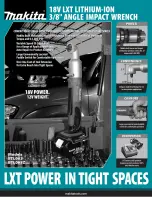
Page 3
SKU 92622
For technical questions, please call 1-800-444-3353
8.
Use eye and ear protection. Always wear ANSI approved impact safety goggles.
Wear a full face shield if you are producing metal filings or wood chips. Wear an ANSI
approved dust mask or respirator when working around metal, wood, and chemical
dusts and mists.
9.
Maintain tools with care. Keep tools sharp and clean for better and safer
performance. Follow instructions for lubricating and changing accessories. Inspect
tool cords periodically and, if damaged, have them repaired by an authorized
technician. The handles must be kept clean, dry, and free from oil and grease at all
times.
10.
Disconnect power. Unplug tool when not in use.
11.
Remove adjusting keys and wrenches. Check that keys and adjusting wrenches
are removed from the tool or machine work surface before plugging it in.
12.
Avoid unintentional starting. Be sure the switch is in the Off position when not in
use and before plugging in. Do not carry any tool with your finger on the trigger,
whether it is plugged in or not.
13.
Stay alert. Watch what you are doing, use common sense. Do not operate any tool
when you are tired.
14.
Check for damaged parts. Before using any tool, any part that appears damaged
should be carefully checked to determine that it will operate properly and perform its
intended function. Check for alignment and binding of moving parts; any broken parts
or mounting fixtures; and any other condition that may affect proper operation. Any
part that is damaged should be properly repaired or replaced by a qualified
technician. Do not use the tool if any switch does not turn On and Off properly.
15.
Replacement parts and accessories. When servicing, use only identical
replacement parts. Use of any other parts will void the warranty. Only use accessories
intended for use with this tool. Approved accessories are available from Harbor
Freight Tools.
16.
Do not operate tool if under the influence of alcohol or drugs. Read warning
labels if taking prescription medicine to determine if your judgment or reflexes are
impaired while taking drugs. If there is any doubt, do not operate the tool.
17.
Maintenance. For your safety, service and maintenance should be performed
regularly by a qualified technician.
18.
Use tools with both hands when required. This tool, and many tools such as chain
saws, drills, routers, etc., require the use of both hands when operating. This helps
maintain tool stability and keeps hands away from the working area of the tool.
Note: Performance of this tool may vary depending on variations in air compressor perfor-
mance.


























